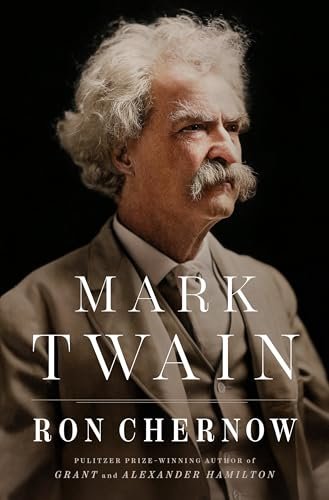Unpacking the Life of Mark Twain: A Journey Through Ron Chernow’s Biography
As the school year melts away, I find myself enveloped in summer’s tranquil embrace, a time reserved for indulging in hefty reads that tug at my heartstrings and ignite my imagination. This year, I kicked off my reading marathon with Ron Chernow’s comprehensive biography of Mark Twain. Twain—an author I admired in high school through The Adventures of Tom Sawyer and Huckleberry Finn—has always intrigued me. Yet, I realized I knew little about the man behind the humor, the river, and the profound observations on the human condition. With over a thousand pages at my fingertips, I was eager to dive into the life of Samuel Langhorne Clemens and discover the layers of his story.
Chernow masterfully weaves together the fabric of Twain’s life—from his humble beginnings in Missouri to his exhilarating fame as America’s beloved author. The biography reveals Twain’s formative years, steeped in the culture of antebellum America, which shaped much of his future writing. For instance, reading about young Sam’s experiences and witnessing child slavery firsthand was a gut-wrenching reminder of the complexities of human morality. Chernow doesn’t shy away from detailing these truths, allowing us to see how Twain’s early exposure to societal injustice gave rise to his fierce anti-slavery sentiments.
What struck me most was the pacing; Chernow balances the raucous spirit of Twain’s earlier years with the somber tones of his later life. The vibrancy of the American West and its characters leaps off the pages, feeding my nostalgia for those wild, untamed days. As a lover of Old West stories, I couldn’t help but smile at Twain’s escapades in Nevada and San Francisco, where he began to hone his craft. Chernow’s portrayal of Twain’s candid relationship with his wife, Livy, paints a vivid picture of their partnership, emphasizing how her influence shaped his literary voice. It became abundantly clear that Livy was instrumental in his success—her edits and advice refined his works into the timeless classics we cherish today.
Chernow’s writing style is equally engaging, with an easy flow that invites readers into Twain’s world. He infuses the narrative with anecdotes and reflections that sparkle with humor and insight, showing how Twain navigated fame, fortune, and personal tragedy. The stark contrast between Twain’s public persona and private struggles resonates deeply, making him a more relatable figure. Chernow’s depiction of Twain’s relationships with notable figures, including Helen Keller and Theodore Roosevelt, brought to life the vibrant social circles of 19th-century America, making me reflect on how artists, writers, and thinkers shape each other’s legacies through collaboration and camaraderie.
While the latter part of the biography, particularly Twain’s obsessions, felt somewhat tedious, Chernow still unveils critical moments in the author’s life that nuanced my understanding of Twain as not just a literary genius but a flawed human being. Twain’s preoccupation with the "angelfish"—young girls on the brink of adolescence—was unsettling, illustrating the complex societal norms of the time.
In conclusion, Ron Chernow’s biography of Mark Twain is not merely a book; it’s an exploration of what it means to be human. For anyone captivated by American literature or curious about the intertwining of personal and public lives, this book is a must-read. Chernow has created not just a narrative of Twain’s life but a reflection on the very essence of American identity, making me think about the chapters of my own life as I read every page. Perhaps, like Twain, we all have stories that are waiting to be told under the glow of Halley’s Comet.
Rating: ⭐⭐⭐⭐½







